{
“@context”: “https://schema.org/”,
“@type”: “Product”,
“name”: ” staging-mondaycomblog.kinsta.cloud vs. Asana: a guide to choosing your best fit in 2021″: “Monday”,
“description”: “staging-mondaycomblog.kinsta.cloud vs. Asana: which software would be a better fit for you and your entire team in managing your tasks and projects? Find out here.”,
“aggregateRating”: {
“@type”: “AggregateRating”,
“ratingValue”: “4.9”,
“bestRating”: 5,
“worstRating”: 1,
“reviewCount”: “952”
}
}
We’ll get right to it – you’re here because you’ve done your research and want to know the best fit for your company: Asana or staging-mondaycomblog.kinsta.cloud.
In this guide, we’ll compare both platforms’ features, pricing plans, and customer support, so you can decide which platform is best for you.
Get startedAsana vs. staging-mondaycomblog.kinsta.cloud: at a glance
Here’s a quick overview of each platform. (We’ll get into the details later.)
What is Asana?
Asana is a work management platform to improve team collaboration and project management. Founded in 2008 by former Facebook executives, Asana aims to “help everyone track their work” by providing one place to manage projects, focus on what’s important, assign tasks to team members, set deadlines, and organize work in one place for seamless collaboration.

What is staging-mondaycomblog.kinsta.cloud?
staging-mondaycomblog.kinsta.cloud is a Work Operating System (Work OS) – an open platform where teams can create solutions to become more agile, get more done, and grow with the business. The cloud-based software allows teams to create custom workflows to plan, run, and track processes, projects, and everyday work.
Organizations and teams of all types and sizes can benefit from the staging-mondaycomblog.kinsta.cloud Work OS. For instance, a sales team could build a CRM, marketing could use it to plan campaigns, and developers could use it to track bugs.
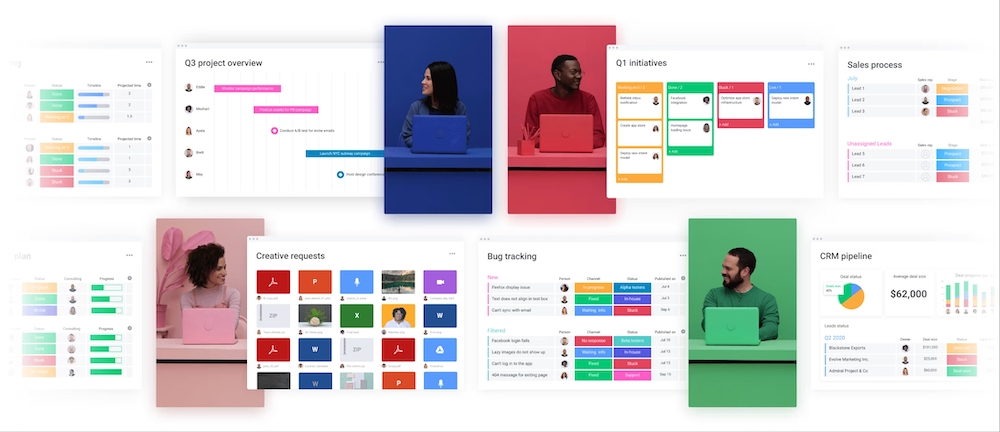
But to really understand the difference between a project management platform and a Work OS, we need to break down each platform’s features.
Asana vs. staging-mondaycomblog.kinsta.cloud features
Check out the standout features from staging-mondaycomblog.kinsta.cloud and Asana.
Asana project management features
Whether planning a content calendar, managing marketing campaigns, or onboarding new clients, Asana’s minimalistic interface makes it simple to navigate and keep your projects on track.
Asana views
Asana includes various views, such as List, Timeline, Calendar, Kanban boards, and Gantt charts, to help teams manage projects efficiently. They can see which tasks to prioritize, manage overlapping and unscheduled tasks, and keep work on track as things change.
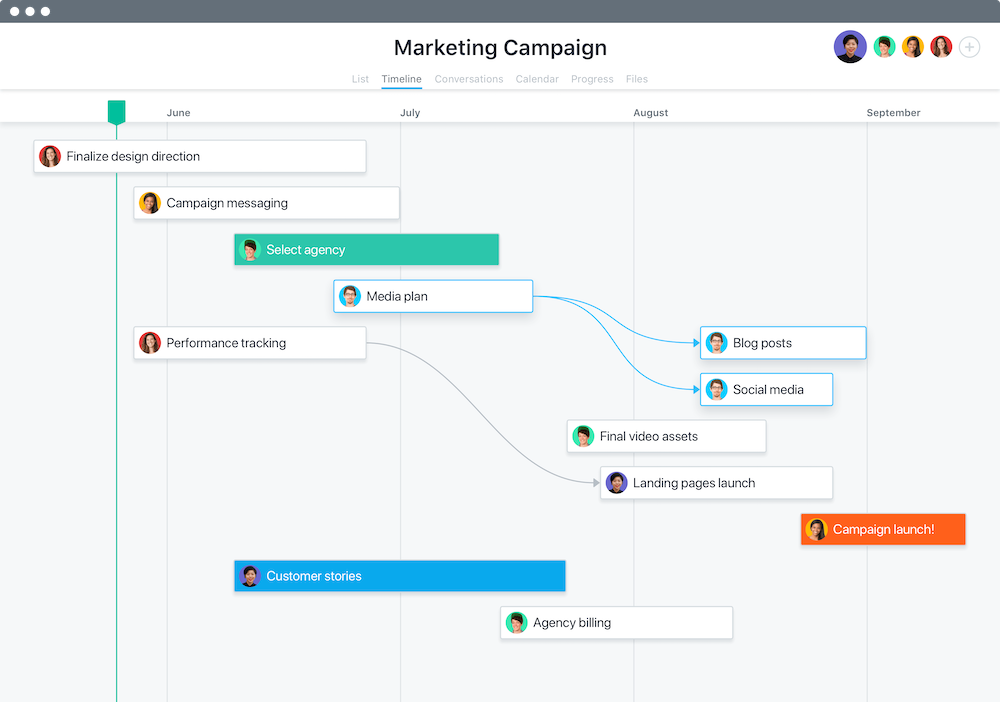
Asana reporting
Asana’s universal reporting lets you see and track work from every angle. You can get real-time insights into your team’s work, gauge project progress, troubleshoot problems instantly, and keep work on track all in one place.
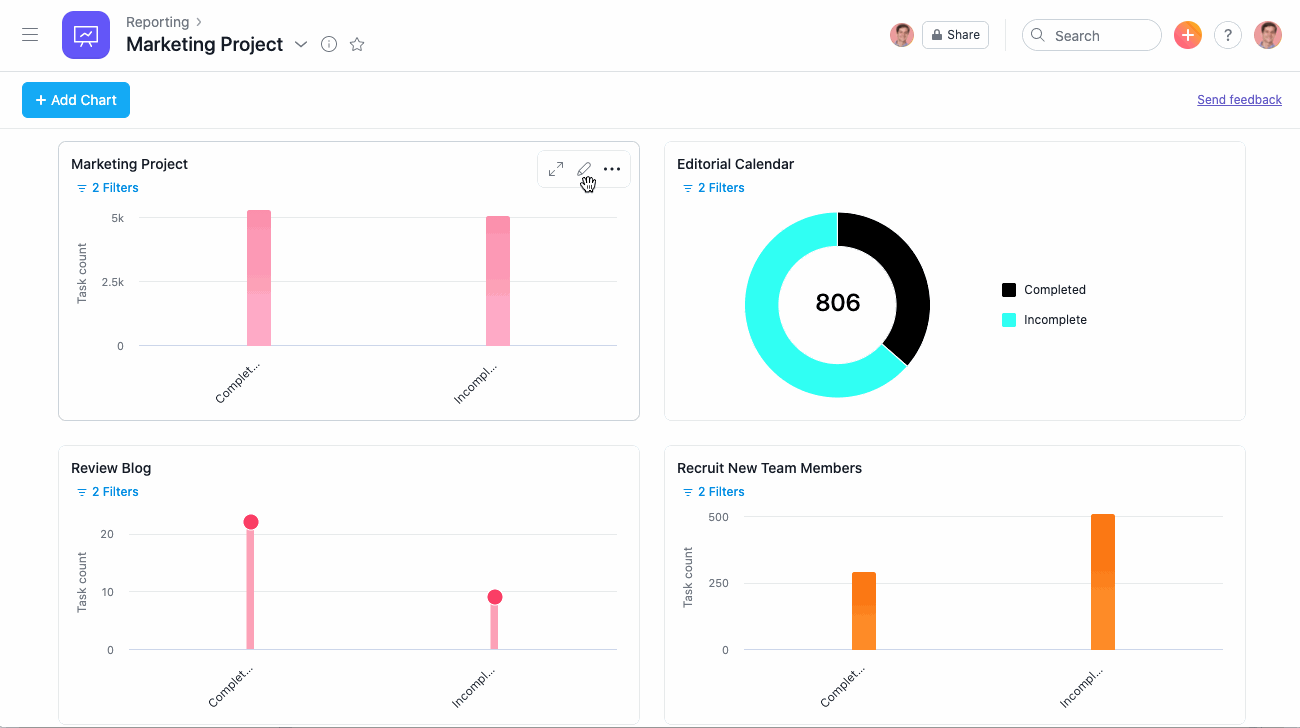
Asana Workload
The Workload feature lets you check how busy team members are across projects in one central view. Prevent burnout by setting restrictions on team members’ workloads and ensure no one is underworked to keep projects on track.
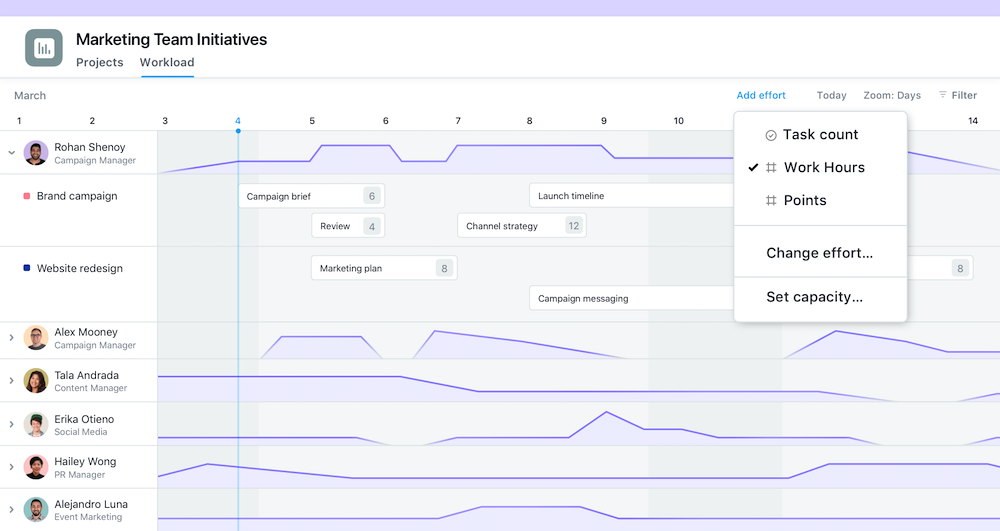
Asana Automation
Asana’s suite of Automation features saves you from wasting time on tedious manual tasks. Create custom rules to automate routine tasks, simplify workflows, and reduce errors so that you can spend more energy on strategic work.
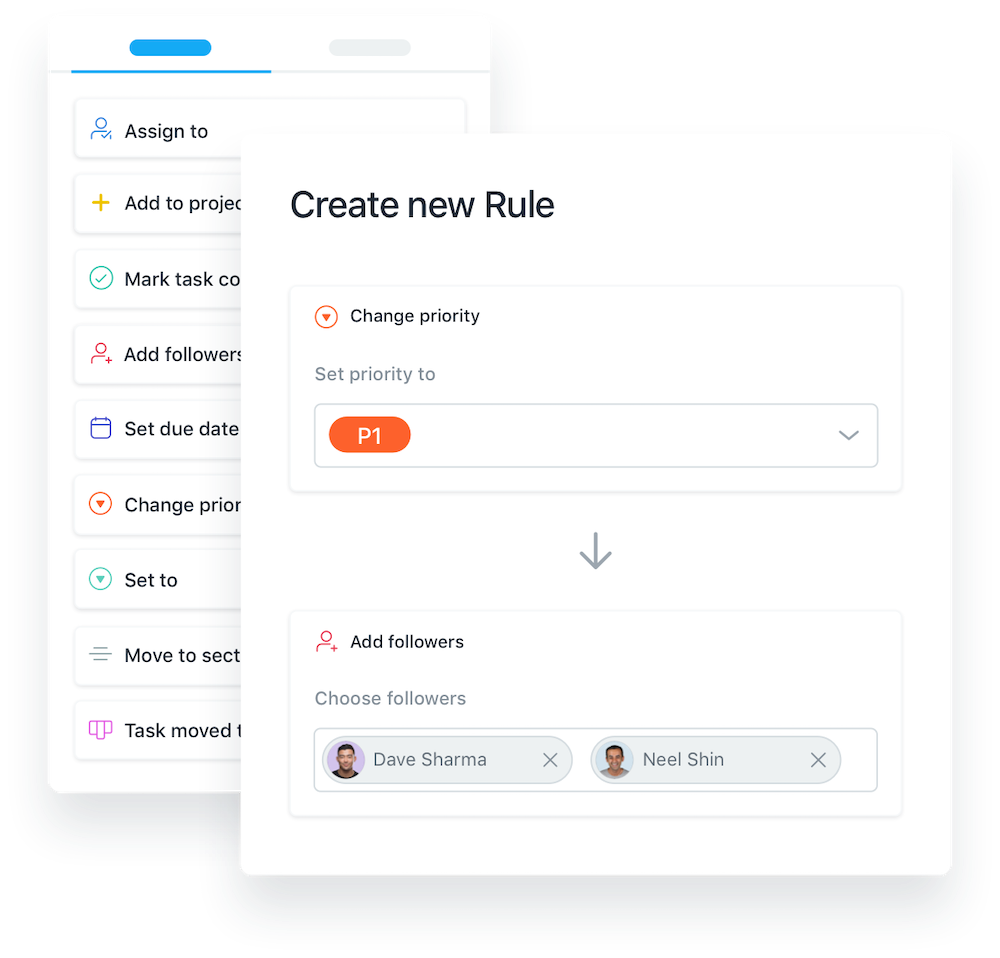
Asana integrations
Asana integrates with over 100 products, like Slack, Adobe Creative Cloud, and Vimeo. In a few clicks, you can manage all your data – emails, files, tickets, and more – in one place.
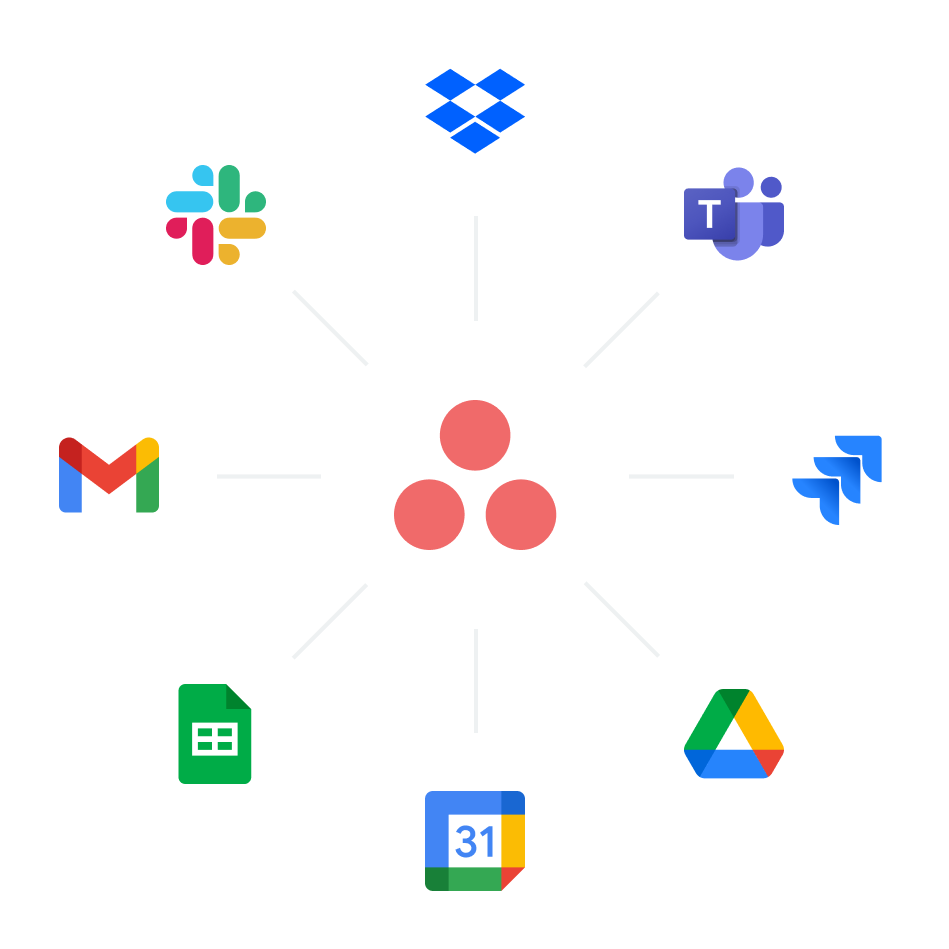
staging-mondaycomblog.kinsta.cloud project management features
Because staging-mondaycomblog.kinsta.cloud allows organizations to build their own products—be it a hiring pipeline for HR or a supply management solution for IT— its features are simple to use, set up, and master.
staging-mondaycomblog.kinsta.cloud dashboards
See the status of your projects at a glance with clear, visual, and intuitive project dashboards to stay on track and reach your goals. Easily create summaries and reports, and get a high-level view of your work to make data-driven decisions.
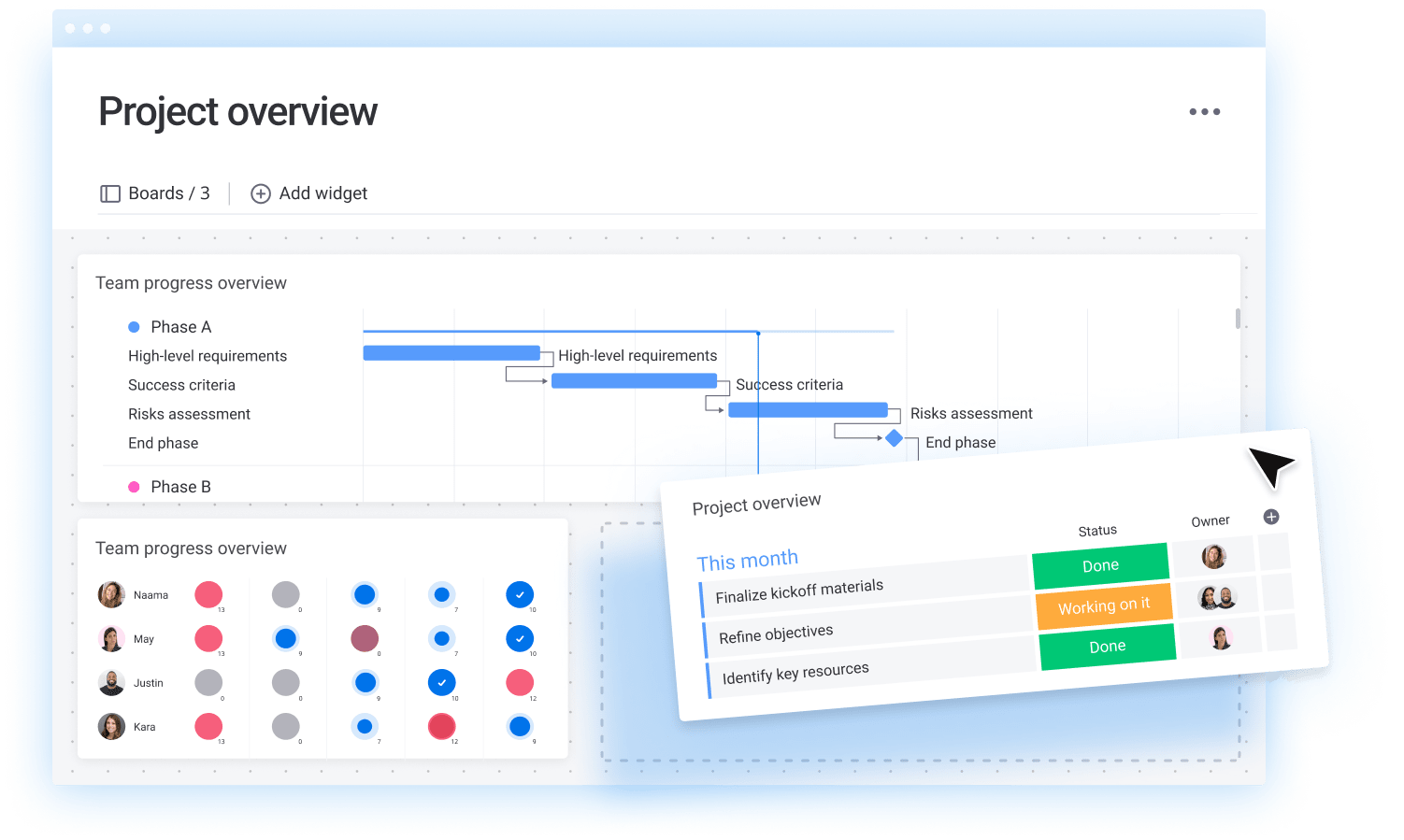
staging-mondaycomblog.kinsta.cloud automations
Save time by automating repetitive and mundane tasks in seconds, so your team can focus on the work that really makes an impact.
For operations, this may look like the following: someone sends a message that the air conditioning isn’t working. That message automatically goes into a board where an ops member can address and track the issue.
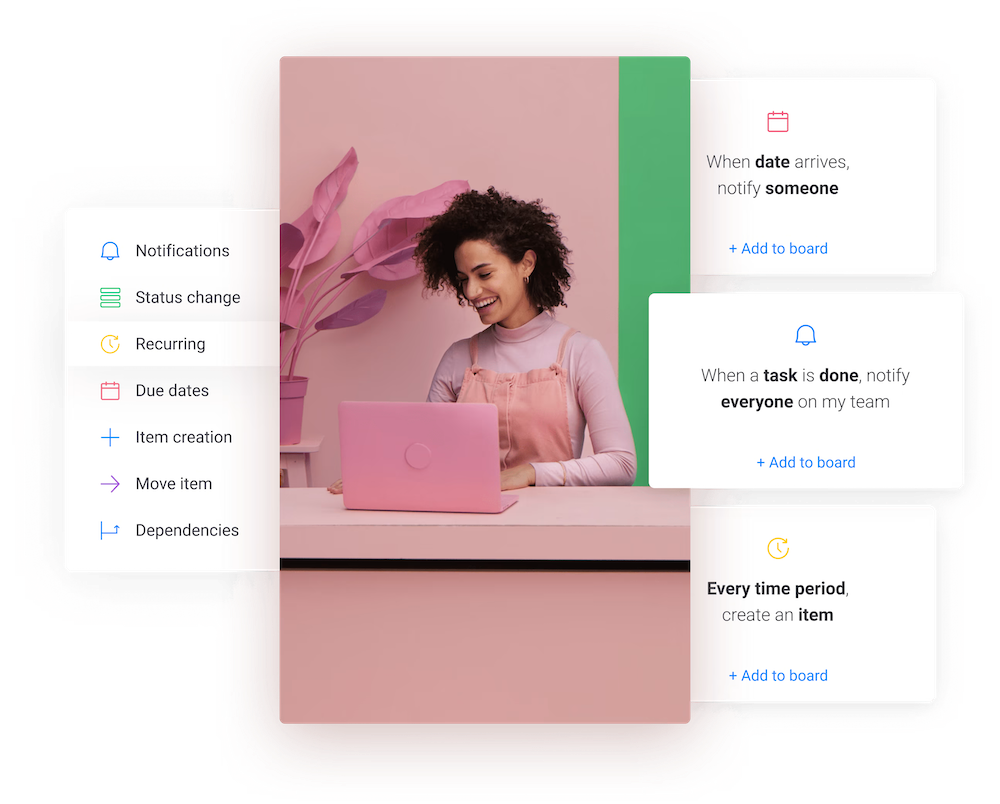
staging-mondaycomblog.kinsta.cloud collaboration
staging-mondaycomblog.kinsta.cloud eliminates the need for painfully long email threads and unnecessary meetings. All communication and files are centralized in one place and kept within the context of your work, so you never miss any critical information.
For instance, sales teams could attach essential collateral, notes, and communications about customers or potential clients all on the same board.
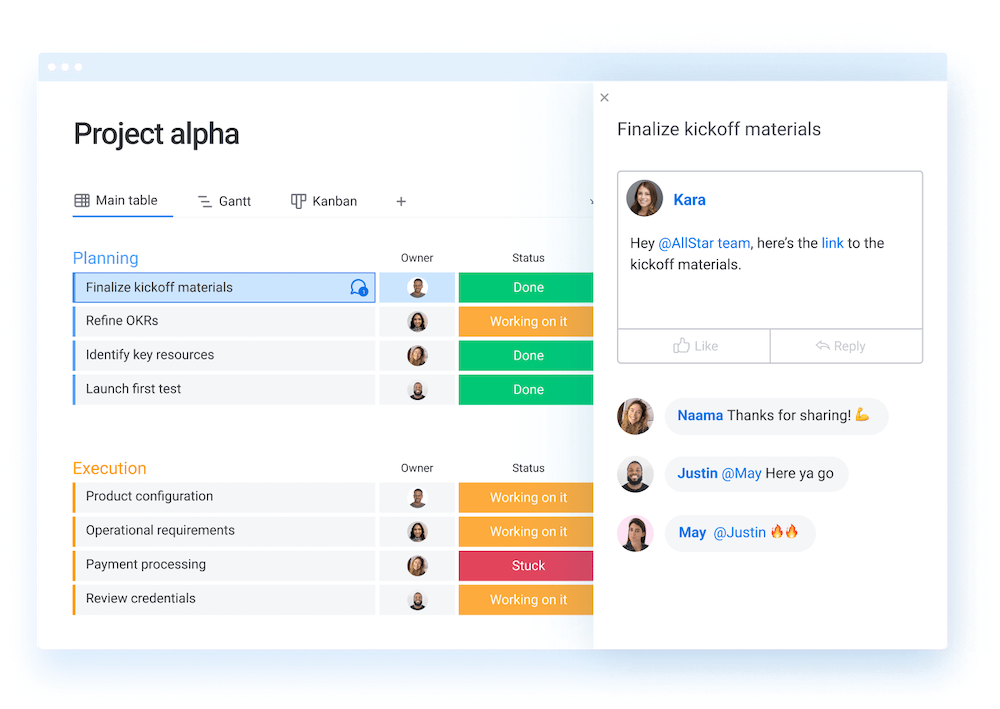
staging-mondaycomblog.kinsta.cloud workdocs
With monday workdocs, any team can create notes, think and work together in real-time on documents, or transform ideas into robust workflows without needing to leave staging-mondaycomblog.kinsta.cloud Work OS.
For example, design teams can utilize this feature to create mockups of marketing or sales materials, internal designs, and more.
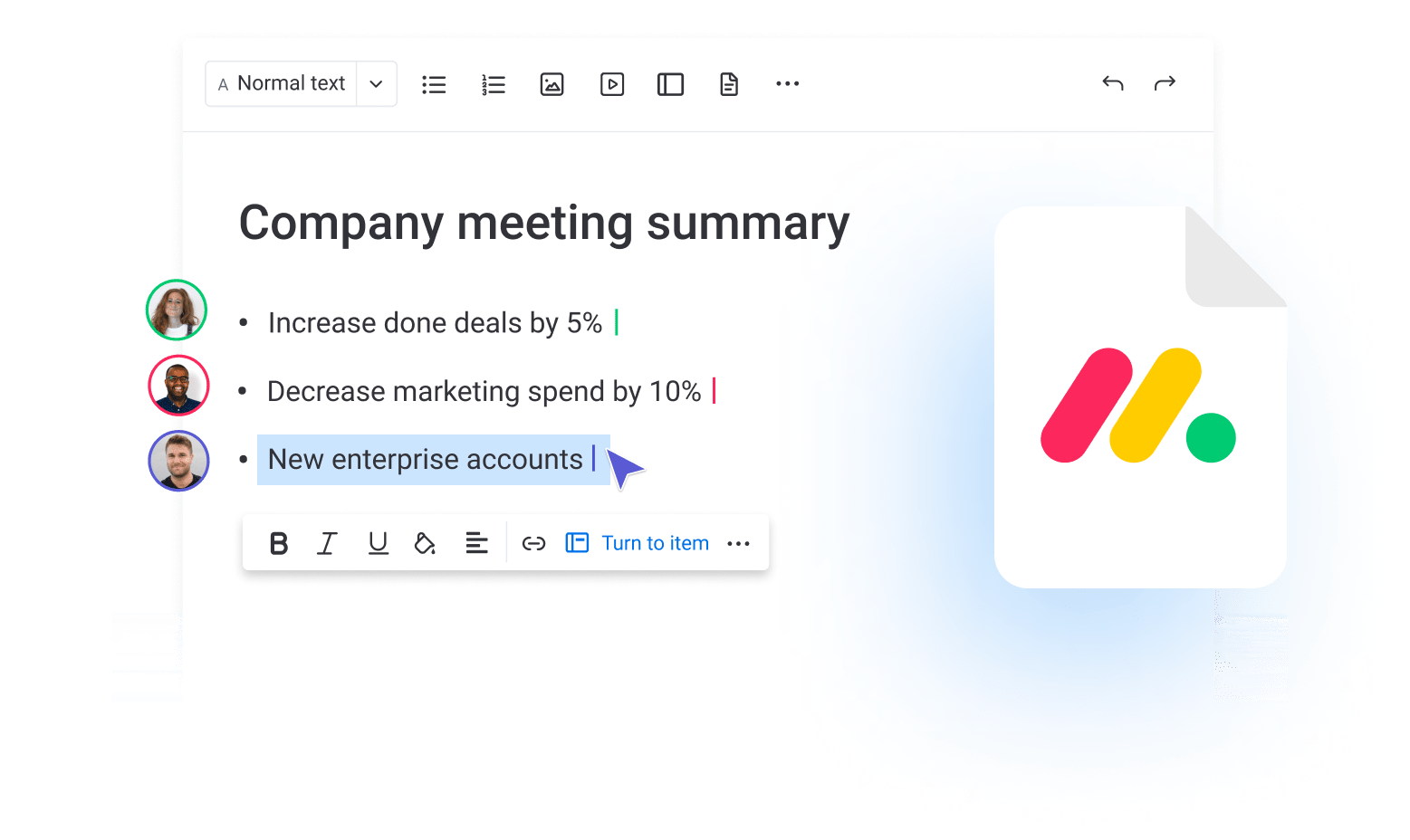
staging-mondaycomblog.kinsta.cloud integrations
Integrate with the tools you love in a few clicks and keep all your data and information updated in one place. Connect your data with 70+ different tools across departments so that everyone can access the same data quickly and efficiently, focus on their strategic work, and stop switching between tools.

We’ve reviewed features, but what about the other make-or-break consideration when deciding between a robust Work OS or a project management platform?
Continue reading for a pricing deep-dive.
Asana vs. staging-mondaycomblog.kinsta.cloud pricing
Check out the following options to see what Asana and staging-mondaycomblog.kinsta.cloud offer in their pricing plans.
Asana pricing
Asana offers four pricing plans, including a free basic plan and 2 premium plans with a 30-day free trial (no credit card required) to test the functionality. Let’s take a look at what features you get in each plan.
Basic
The Basic Plan – a forever-free plan – suits individuals or small teams of less than 15 people just starting with project management who want to manage tasks and personal to-do lists. It includes:
- Unlimited tasks, projects, and messages
- Unlimited storage and activity log
- List, board, and calendar views
- Project Overview and Brief
- 100+ free integrations
- iOS and Android apps
Premium
Asana’s Premium Plan – from $10.99 per user per month (billed annually) – enables teams to create and track projects confidently. It includes everything in the Basic package, plus:
- Timeline
- Workflow Builder
- Milestones
- Forms
- Unlimited dashboards
- Advanced search and reporting
Business
Asana’s Business Plan – from $24.99 per user per month (billed annually) – allows teams and companies to manage work across multiple projects. It includes all the Premium features, plus:
- Portfolios
- Goals
- Workload
- Custom rules builder
- Forms branching and customization
- Time tracking
- Advanced integrations
Enterprise
Asana’s Enterprise Plan – contact sales for a custom quote – caters to larger organizations that need centralized visibility, control, and support. It includes advanced admin and security features, such as:
- Security Assertion Markup Language (SAML)
- User and group provisioning and de-provisioning (SCIM)
- Audit Log API (built to support SIEM)
- Data loss prevention (DLP) and export
- Cross-regional backups
- 24/7 support
staging-mondaycomblog.kinsta.cloud pricing
staging-mondaycomblog.kinsta.cloud offers four premium pricing plans and a 14-day free trial (no credit card required) to test all its features. Pricing operates on a “price-per-seat” model. How much you pay will depend on how many seats you need, what features you’re looking for, and whether you want to pay annually or monthly.
Basic
The Basic Plan – from $8 per seat per month (billed annually, min 3 seats at $24/month) – lets solopreneurs and small teams organize their tasks in one place and create a dashboard based on one board. It includes everything in the Individual package, plus:
- Unlimited items, docs, boards, and free viewers
- 200+ templates
- 35+ column types
- Kanban view
- Prioritized customer support
- iOS and Android apps
Standard
The Standard Plan – from $10 per seat per month (billed annually, min 3 seats at $30/month) – enables medium-sized teams to collaborate and optimize their team processes and create a dashboard that combines up to 5 boards. It includes everything in the Basic package, plus:
- Timeline, Gantt, and calendar views
- Advanced search functionality
- Guest access
- Automations (250 actions per month)
- Integrations (250 actions per month)
Pro
The Pro Plan – from $16 per seat per month (billed annually, min 3 seats at $48/month) – allows you to streamline and run your teams’ complex workflows and create a dashboard that combines up to 10 boards. It includes all the Standard features, plus:
- Private boards and docs
- Chart view
- Time tracking
- Formula column
- Automations (25,000 actions per month)
- Integrations (25,000 actions per month)
Enterprise
The Enterprise Plan – contact staging-mondaycomblog.kinsta.cloud for a custom quote – lets you create a dashboard that combines up to 50 boards and caters to larger organizations requiring more advanced solutions and security, such as:
- Enterprise-grade security and governance
- Enterprise-scale automations and integrations
- Advanced reporting and analytics
- Multi-level permissions
- Tailored onboarding
- Premium support
Not sure which one of these pricing plans is right for you? Check out the pricing page to find the perfect option for your team and budget.
Get startedAsana vs. staging-mondaycomblog.kinsta.cloud customer support
The best software is affordable, feature-rich, and flexible. But what else should a top-notch Work OS or project management platform have? Great support.
Asana customer support
Unlike competitors, Asana does not offer support by phone. For those comfortable reaching out virtually, Asana allows customers to get in touch through email and chat support. Premium, Business, or Enterprise users get access to priority support, customer success webinars, and the Asana Academy.
Customers can also help themselves via the Help Guide, knowledge base, and videos for troubleshooting.
Here’s what one G2 reviewer said about Asana support:
“Asana always keeps up to date in terms of tracking tools for all my projects and tasks in one place. The customer support is relatively fast and they answer our questions accurately and directly.”
staging-mondaycomblog.kinsta.cloud support
At staging-mondaycomblog.kinsta.cloud, all customers get 24/7 support every day of the year, anytime, anywhere. Aside from phone support, customers can also receive help through email, a contact form on the website, a community forum, a knowledge base, and videos.
Here’s how one G2 reviewer rated staging-mondaycomblog.kinsta.cloud support:
“In-app notifications, training, help, and support are the best I’ve seen in a software product. You can track what is new to staging-mondaycomblog.kinsta.cloud (and easily enable beta features if you’d like), set up training workspaces, and react to new developments all in the app.”
Asana vs. staging-mondaycomblog.kinsta.cloud: what are the key differences?
Both Asana and staging-mondaycomblog.kinsta.cloud offer impressive features to manage projects, track tasks, collaborate across teams, and generate reports.
Asana’s forever-free Basic plan is a great starting point for small teams with unlimited tasks and projects. It also includes 200+ software integrations with unlimited actions, so it’s easy to sync with your other essential apps.
But for larger teams, the premium Pro plan from staging-mondaycomblog.kinsta.cloud ($16/seat/month) is superior to Asana’s Business plan ($24.99/user/month). The robust Work OS gives you access to flexible building blocks like integrations, automations, and dashboards, allowing you to build a customized workflow for any team and function.
Plus, you get more features, like column types, view options, hundreds of ready-made templates, and 24/7 customer support on all pricing plans.
G2 reviewers rated staging-mondaycomblog.kinsta.cloud better than Asana for meeting their business needs and having better ongoing product support. Reviewers also preferred the direction, feature updates, and product roadmaps offered by staging-mondaycomblog.kinsta.cloud over Asana.
Currently, Asana rates 4.3/5 stars from 9,208 reviews, while staging-mondaycomblog.kinsta.cloud rates 4.7/5 stars from 6,740 reviews.
Get startedStart working more efficiently with the platform for your needs
Now that you have all the information on staging-mondaycomblog.kinsta.cloud Work OS, vs Asana’s project management software, which will you choose? Will you go for a fully customizable platform that scales with you as you grow? Or opt for a tool that covers the basics, but doesn’t necessarily have all the flexibility you need?
Related articles: Asana vs. ClickUp, Asana vs. Jira, Asana vs. Wrike, Asana vs. Airtable, Asana vs. Trello, Asana vs. Smartsheet, staging-mondaycomblog.kinsta.cloud alternatives